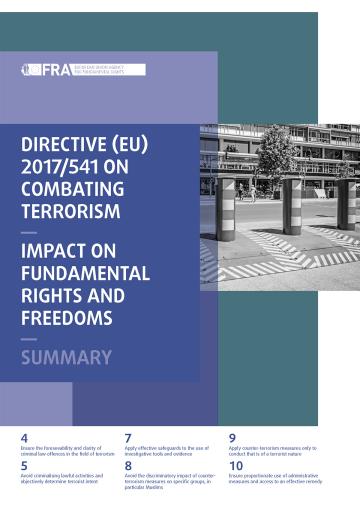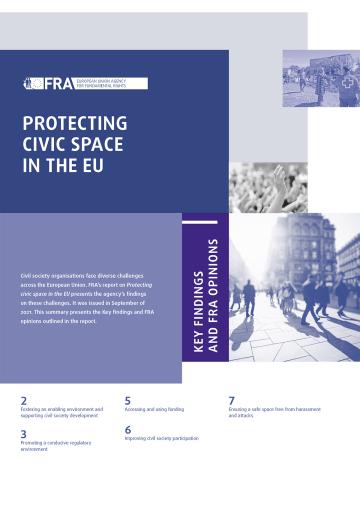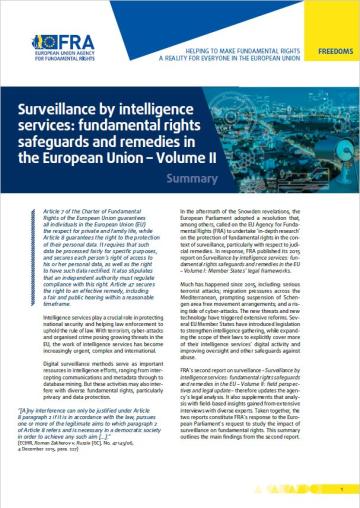The directive was adopted in 2017 to address the developing terrorist threat associated primarily with individuals who travel abroad for the purposes of terrorism and pose a threat upon their return, commonly referred to as foreign terrorist fighters. To this end, the directive requires Member States to take new measures to combat terrorism, including criminalising offences such as travelling for the purpose of terrorism, or receiving training for terrorism.
The directive, and its impact on fundamental rights, has drawn significant public attention. The European Commission asked FRA to conduct research on the directive’s impact on fundamental rights and freedoms in order to support its own assessment of the directive, focusing on specific changes that the directive introduced in comparison with previous EU legal instruments.
The findings and opinions deriving from this research aim to contribute to implementing EU legislation, policy and other measures in the field of counter-terrorism across the EU in full compliance with fundamental rights.
FRA’s findings are based primarily on interviews with practitioners and experts who have particular experience or specialisation in counter-terrorism in Belgium, France, Germany, Greece, Hungary, Spain and Sweden. The fieldwork was supported by limited desk research in all 25 Member States bound by the directive.
















